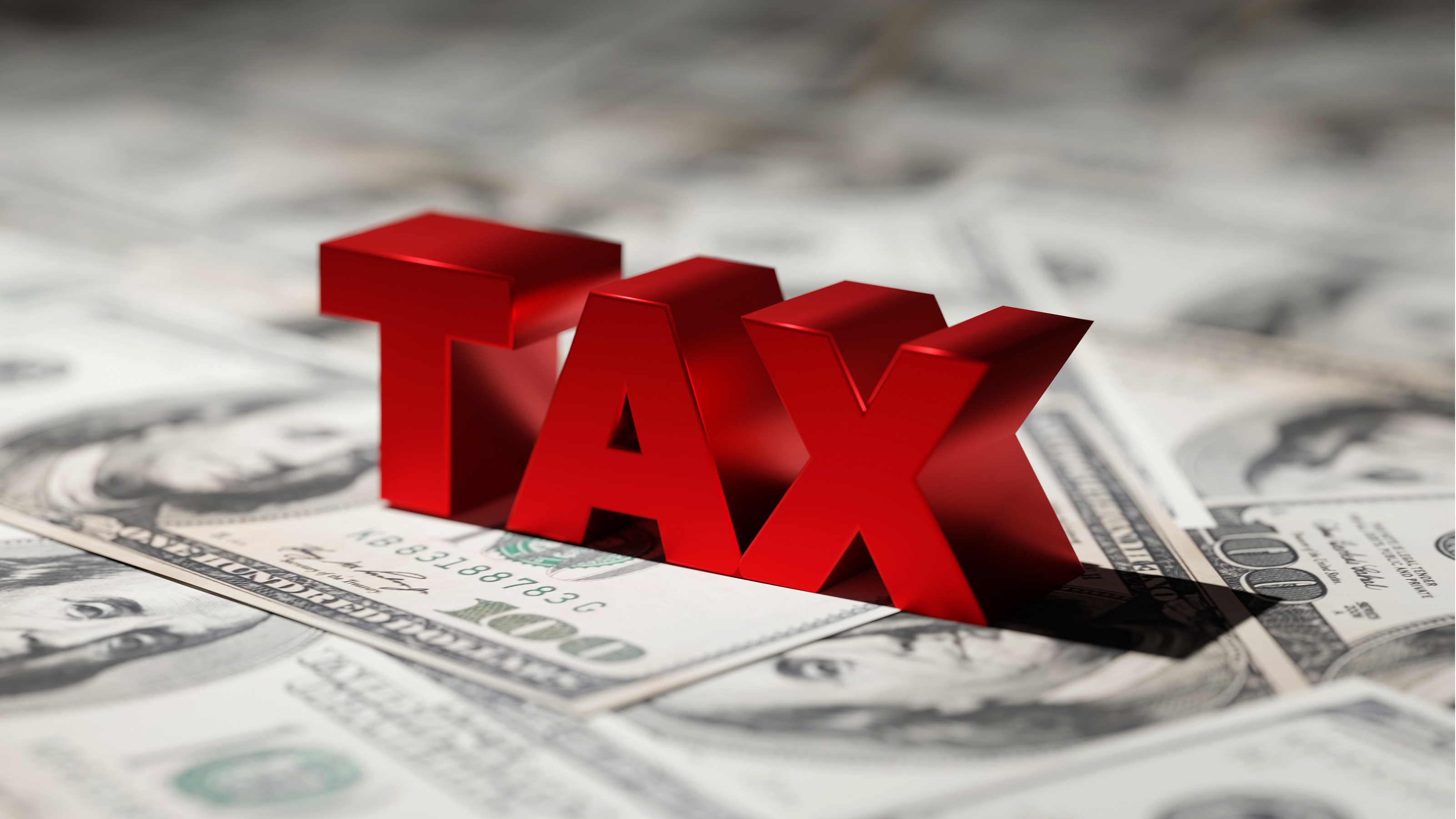10 Tax Topics Every Retiree Should Know About
A little knowledge can go a long way toward saving on your tax bill. Print this out and take it to your tax planner so you can have a productive chat.


Profit and prosper with the best of Kiplinger's advice on investing, taxes, retirement, personal finance and much more. Delivered daily. Enter your email in the box and click Sign Me Up.
You are now subscribed
Your newsletter sign-up was successful
Want to add more newsletters?

Delivered daily
Kiplinger Today
Profit and prosper with the best of Kiplinger's advice on investing, taxes, retirement, personal finance and much more delivered daily. Smart money moves start here.

Sent five days a week
Kiplinger A Step Ahead
Get practical help to make better financial decisions in your everyday life, from spending to savings on top deals.

Delivered daily
Kiplinger Closing Bell
Get today's biggest financial and investing headlines delivered to your inbox every day the U.S. stock market is open.

Sent twice a week
Kiplinger Adviser Intel
Financial pros across the country share best practices and fresh tactics to preserve and grow your wealth.

Delivered weekly
Kiplinger Tax Tips
Trim your federal and state tax bills with practical tax-planning and tax-cutting strategies.

Sent twice a week
Kiplinger Retirement Tips
Your twice-a-week guide to planning and enjoying a financially secure and richly rewarding retirement

Sent bimonthly.
Kiplinger Adviser Angle
Insights for advisers, wealth managers and other financial professionals.

Sent twice a week
Kiplinger Investing Weekly
Your twice-a-week roundup of promising stocks, funds, companies and industries you should consider, ones you should avoid, and why.

Sent weekly for six weeks
Kiplinger Invest for Retirement
Your step-by-step six-part series on how to invest for retirement, from devising a successful strategy to exactly which investments to choose.
Retirement can bring many changes to your life. But, unfortunately, one thing doesn’t change: You will still pay taxes.
The good news: The better understanding you have of what to expect with taxes in retirement, the better your chances of reducing your tax bill. I am not a CPA, so I don’t give tax advice.
But I can share with you some tax topics that you should ask about the next time you meet with your tax planner or CPA, so that the two of you can discuss strategies for keeping what you owe Uncle Sam to a minimum.
From just $107.88 $24.99 for Kiplinger Personal Finance
Become a smarter, better informed investor. Subscribe from just $107.88 $24.99, plus get up to 4 Special Issues

Sign up for Kiplinger’s Free Newsletters
Profit and prosper with the best of expert advice on investing, taxes, retirement, personal finance and more - straight to your e-mail.
Profit and prosper with the best of expert advice - straight to your e-mail.
Here are the top 10 tax topics retirees should know about:
1. RMDs
If the money you’ve saved for retirement is in tax-deferred accounts, you eventually will be subject to required minimum distributions (RMDs). An RMD is an amount you must withdraw from your account each year, whether you want to or not. Keep in mind: You pay taxes on that amount.
If you fail to meet the RMD, you can face a 25% penalty, so it’s important to know when your RMD kicks in. The age used to be 72, but now for those born between 1951 and 1959, the RMD starting age is 73. For those born in 1960 and later, the age is 75.
2. Social Security benefits
Sometimes people look surprised when I tell them that, depending on their income, Social Security can be taxed. The Social Security Administration reports that about 40% of people who get Social Security must pay taxes on their benefits.
A married couple filing jointly could pay income tax on up to 50% of their benefits if their income is between $32,000 and $44,000. If their income is more than $44,000, up to 85% of their benefits may be taxable.
3. Healthcare costs
One of the largest expenses retirees incur is healthcare. In some cases, those expenses are tax deductible, so be sure you understand the rules for which medical expenses can be deducted.
4. Tax strategies for retirement income
When you have multiple retirement accounts, it’s important to have a tax-efficient plan for making withdrawals. Typically, you want to draw from taxable accounts first, then tax-deferred accounts (such as a traditional IRA or 401(k)), then, finally, tax-free accounts, such as a Roth IRA.
5. State income taxes
If you plan to move in retirement, one factor to consider when choosing your new home is state income taxes. Most states have an income tax, but a few don’t.
For example, California’s tax has nine brackets ranging from 1% to 12.3%. Florida, in contrast, has no state income tax.
6. Tax credits and deductions
Make sure you take advantage of any tax credits or deductions coming to you. When you are over 65, the standard deduction is increased on your income taxes, so be sure to check the correct box.
Additionally, there is a tax credit for older people or the disabled, which is available to those aged 65 and older or who are permanently disabled. There are income limits on that credit, though.
7. Estate taxes
Understand the tax implications related to passing on wealth to your heirs. You want to do this in the most tax-efficient way.
Most people aren’t affected by estate taxes because in 2025 the first $13.99 million is exempt. But that amount could be drastically reduced if the 2017 tax cuts, set to expire at the end of 2025, are not extended.
8. Changing tax laws
You may have noticed by now that tax laws aren’t static. Lawmakers often change them. The potential big change coming soon is the previously mentioned sunset of the 2017 Tax Cuts and Jobs Act.
Be sure to work with your CPA to make sure you are aware of any changes that affect you.
9. Taxation on investments
Not all investments are taxed the same. If you make a withdrawal from an IRA, that money is taxed as ordinary income. If you sell stock or real estate, your profit is taxed based on the lower capital gains tax rates.
Roth IRA withdrawals aren’t taxed at all (as long as you are 59½ or older and have had the account for at least five years).
It’s important to be aware of all this when you are deciding where to withdraw money.
10. 529 plans for education
Many retirees want to help pay for their grandchildren’s education costs and do so by contributing to a 529 plan specifically earmarked for education. There are limits on how much you can contribute, though, so be aware of that.
Otherwise, you could be subject to the gift tax if you go over the limit. Worth noting: One recent rule change allows the beneficiary of the 529 to roll over unused funds into a Roth IRA without penalty.
As you can see, the more you know about taxes, the better you can plan for how to get the most out of your money in retirement.
But always check with your CPA or other tax professional to make sure you are paying the least amount possible while still staying within the rules.
The more you can keep in your pocket, the better your retirement will be.
Ronnie Blair contributed to this article.
The appearances in Kiplinger were obtained through a PR program. The columnist received assistance from a public relations firm in preparing this piece for submission to Kiplinger.com. Kiplinger was not compensated in any way.
Insurance products are offered through the insurance business Endependence Financial. Endependence Financial is also an Investment Advisory practice that offers products and services through AE Wealth Management LLC (AEWM), a Registered Investment Adviser. AEWM does not offer insurance products. The insurance products offered by Endependence Financial are not subject to Investment Adviser requirements.
Neither the firm nor its agents or representatives may give tax or legal advice. Individuals should consult with a qualified professional for guidance before making any purchasing decisions. 2802562 12/24
Related Content
- Three Strategies to Cut Your Taxes in Retirement
- Most-Overlooked Tax Breaks for Retirees and People Over 65
- Will the TCJA Estate and Gift Tax Provisions Really Sunset?
- Calculating Taxes on Social Security Benefits
- Three Steps to Simplify Paying Your Taxes in Retirement
Profit and prosper with the best of Kiplinger's advice on investing, taxes, retirement, personal finance and much more. Delivered daily. Enter your email in the box and click Sign Me Up.

Michael Miller, a financial adviser with Endependence Financial, has dedicated his career to guiding clients through the complexities of financial planning. His education and background as a financial adviser equipped him with the knowledge to address a wide range of financial issues. He can offer both insurance and investment products and services. He has obtained his series 65 and 66 licenses and has a master’s degree in finance.
-
 Quiz: Do You Know How to Avoid the "Medigap Trap?"
Quiz: Do You Know How to Avoid the "Medigap Trap?"Quiz Test your basic knowledge of the "Medigap Trap" in our quick quiz.
-
 5 Top Tax-Efficient Mutual Funds for Smarter Investing
5 Top Tax-Efficient Mutual Funds for Smarter InvestingMutual funds are many things, but "tax-friendly" usually isn't one of them. These are the exceptions.
-
 AI Sparks Existential Crisis for Software Stocks
AI Sparks Existential Crisis for Software StocksThe Kiplinger Letter Fears that SaaS subscription software could be rendered obsolete by artificial intelligence make investors jittery.
-
 Quiz: Do You Know How to Avoid the 'Medigap Trap?'
Quiz: Do You Know How to Avoid the 'Medigap Trap?'Quiz Test your basic knowledge of the "Medigap Trap" in our quick quiz.
-
 5 Top Tax-Efficient Mutual Funds for Smarter Investing
5 Top Tax-Efficient Mutual Funds for Smarter InvestingMutual funds are many things, but "tax-friendly" usually isn't one of them. These are the exceptions.
-
 Why Invest In Mutual Funds When ETFs Exist?
Why Invest In Mutual Funds When ETFs Exist?Exchange-traded funds are cheaper, more tax-efficient and more flexible. But don't put mutual funds out to pasture quite yet.
-
 We Retired at 62 With $6.1 Million. My Wife Wants to Make Large Donations, but I Want to Travel and Buy a Lake House.
We Retired at 62 With $6.1 Million. My Wife Wants to Make Large Donations, but I Want to Travel and Buy a Lake House.We are 62 and finally retired after decades of hard work. I see the lakehouse as an investment in our happiness.
-
 Social Security Break-Even Math Is Helpful, But Don't Let It Dictate When You'll File
Social Security Break-Even Math Is Helpful, But Don't Let It Dictate When You'll FileYour Social Security break-even age tells you how long you'd need to live for delaying to pay off, but shouldn't be the sole basis for deciding when to claim.
-
 I'm an Opportunity Zone Pro: This Is How to Deliver Roth-Like Tax-Free Growth (Without Contribution Limits)
I'm an Opportunity Zone Pro: This Is How to Deliver Roth-Like Tax-Free Growth (Without Contribution Limits)Investors who combine Roth IRAs, the gold standard of tax-free savings, with qualified opportunity funds could enjoy decades of tax-free growth.
-
 One of the Most Powerful Wealth-Building Moves a Woman Can Make: A Midcareer Pivot
One of the Most Powerful Wealth-Building Moves a Woman Can Make: A Midcareer PivotIf it feels like you can't sustain what you're doing for the next 20 years, it's time for an honest look at what's draining you and what energizes you.
-
 Stocks Make More Big Up and Down Moves: Stock Market Today
Stocks Make More Big Up and Down Moves: Stock Market TodayThe impact of revolutionary technology has replaced world-changing trade policy as the major variable for markets, with mixed results for sectors and stocks.